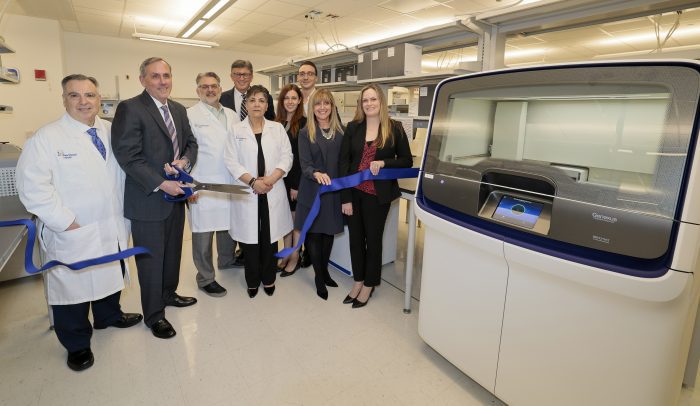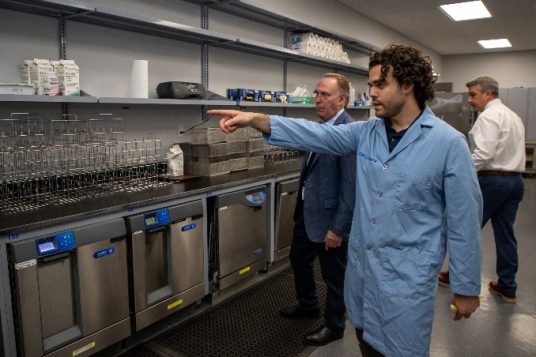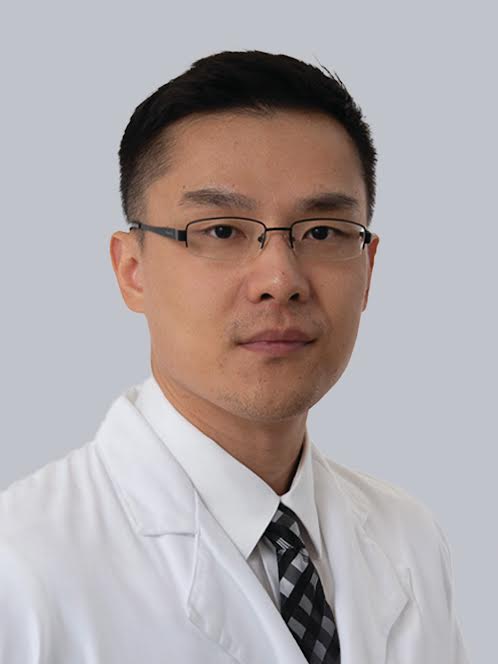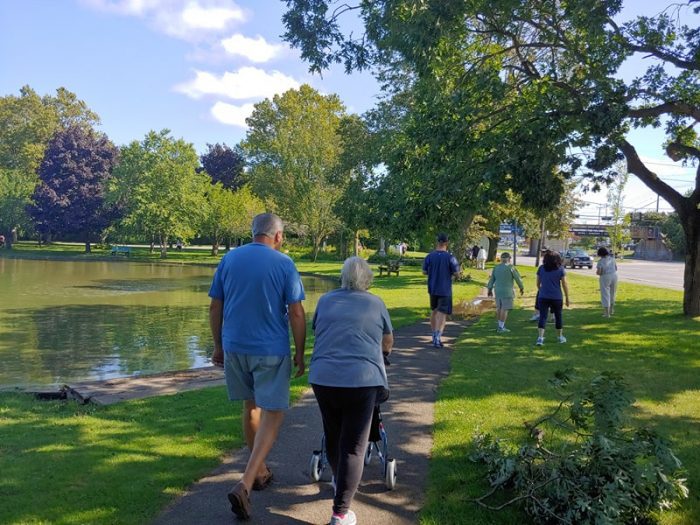By Daniel Dunaief
Northwell Health Cancer Institute and its Center for Genomic Medicine opened a Molecular Diagnostics Laboratory, which will reduce the cost of testing and shorten the time to get test results for cancer tests.
At a cost of $3.2 million, the 2,800 square foot facility will use next generation sequencing to provide tumor and patient genomic profiling and to assist in testing for biomarkers and determining the choice of cancer therapy.
The MDL, which is using the space Northwell Health Labs owned, will offer an array of tests in a phased approach. It is starting with a set of single gene tests to inform precision therapies for lung, melanoma, pancreatic, and colorectal cancer, which can be conducted in 24 to 72 hours.
“We like to get cancer therapy started as soon as possible for patients with metastatic disease,” said Jeff Boyd, vice president and chief scientific officer and director of the Northwell Health Cancer Institute’s Center for Genomic Medicine. When Northwell sent out similar tests to for-profit centers, the results, depending on the test, could take weeks.
The MDL is performing these tests on patients with advanced stage disease and/or recurrent diseases, which increases the need to generate results quickly.
“That makes a huge difference for the ordering oncologist and, most especially and importantly to the patient,” said Boyd. “The sooner they can get on precision therapeutics to treat the disease, the better. Outcomes will reflect wait time until you get therapy.”
Northwell treats more New York residents for cancer than any provider in the state, according to the Statewide Planning and Research Cooperative System, inpatient and ambulatory surgery data.
The center, which is located in Lake Success, started conducting tests several weeks ago.
The lab is using high-end DNA sequencing to extract and define the genomic details of each tumor. Each patient tumor is different, which affects decisions about the best possible treatment.
“When the diagnosis isn’t totally clear to the pathology team, the genetics of the cancer will often inform the diagnosis,” said Boyd. Some patients with the same type of tumor will respond differently to radiation.
The lab is offering four single-gene tests: EGF for non-small cell lung cancer, BRAF for melanoma, KRAS for colorectal, pancreatic and lung cancers, and BRAF/NRAS for melanoma.The MDL plans to offer a 161-gene NGS panel for solid malignancies, a 45-gene NGS panel for hematologic malignancies, and MSI-H, a genetic test that reveals whether tumors will respond to immunotherapy.
Long road
Northwell recruited Boyd to start a molecular diagnostic lab four years ago. He started working in February of 2020, a month before the pandemic caused local, state, national and worldwide disruption.
While he has other responsibilities, Boyd suggested that his “primary reason” for joining Northwell was to “create and direct a Center for Genomic Medicine.”
Northwell conducted extensive physical renovation of the core lab facility that houses the MDL. Northwell also hired six people for the MDL, which includes a lab director, a lab manager, two certified lab technicians, a director of bioinformatics and an LIMS administrator.
In addition, New York State Department of Health had to certify the tests. Northwell is working through certification for additional tests.
Patients don’t need to go to the Lake Success facility to benefit from the services offered by the lab.The cost to patients for these tests is less than it would be for a for profit lab, Boyd said.
“We are a non profit and all we’re looking for is the sustainability of the lab infrastructure,” he added.
At this point, the lab isn’t conducting any germ line testing to determine if there are genetic predispositions to various cancers.
“That might be one of those tests we role out in the future,” Boyd said.
For Boyd, who earned a PhD in toxicology and biochemistry from North Carolina State University in Raleigh, the work is particularly rewarding.
To see his job “impact care tomorrow” based on a particular genetic alteration, “it doesn’t get much better than that for an individual with my background and profession,” he said.


















